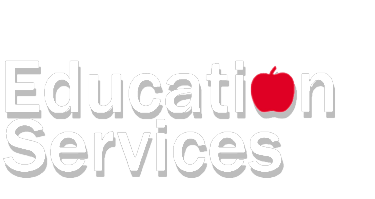Dyslexia
Special Needs Tutoring for Students in Northeast Ohio and Beyond
Dyslexia is more than just a student’s inability to see words or letters in a straight-line. It’s an over simplified definition and a common misconception.
While dyslexia is often thought to be reading disorder, it can also affect writing, spelling and speaking in some cases. Many dyslexics are undiagnosed because they do not have observable problems with reversals that people assume are apparent all of the time. Dyslexic symptoms may vary greatly in type and severity.
Dyslexia has different effects for people. Some children exhibit issues early on with reading and writing. However, some dyslexics do not have trouble until later with more complex language skills, such as grammar, reading comprehension and more in-depth writing.
Dyslexia can also affect vocabulary, making it difficult to express oneself clearly or understand others. Some dyslexics especially struggle with abstract thoughts and non-literal languages, such as idiomatic expressions, jokes and proverbs. Dyslexia may also be called a “language learning disability”.
Some schools tell families they cannot deem a child eligible under the term dyslexia. However, in the state of Ohio, children can receive a diagnosis of dyslexia as a type of learning disability.
Individuals that are gifted in art, music, sports, theater, and mechanical ability may be dyslexic. These activities are “kinesthetic” or hands-on types of activities. Often dyslexics also score higher on the Perceptual Reasoning portion of the Weschler Intelligence Scale for Children IV or V Edition (IQ).
Having dyslexia does not mean a student is not intelligent; they simply learn differently. Successful teaching techniques combine multi-sensory elements for dyslexics so they can better comprehend information. Often their vocabularies are smaller because they have spent less time reading.
NCES tutors assist students with a broad range of learning disabilities, including these conditions that are often associated with dyslexia:
- dysgraphia—which refers to difficulties in writing; and
- dyscalculia—which refers to difficulties in math.
Often students with dyscalculia score lower on the Perceptual Reasoning portion of the Weschler Intelligence Scale for Children IV or V Edition (IQ).
Students can take comfort knowing they are not alone. Popular dyslexic celebrities and inventors include:
- Walt Disney
- Albert Einstein
- Leonardo da Vinci
- Thomas Edison
- Whoopi Goldberg
- Cher
- Jennifer Aniston
- Channing Tatum
- Muhammad Ali
- Keira Knightley
- Steven Spielberg
- Orlando Bloom
- Tim Tebow
- Anderson Cooper
The highly qualified staff and trained educators at NCES work with students to help them with their individual needs. Richards Learning Systems ® and Real Life Ma+h are extremely effective for learners with dyslexia.
Contact us or call at 440-914-0200 for more information on how we can help your student.
Other resources:
- Irlen Syndrome
- Learning Ally, to get your child audio textbooks
- Read, Write and Gold, which is a program that will read to your child and provide writing assistance for classroom assignments.
- Seeing Things Differently from Other Resources
- The Jagged Line from Other Resources
“Four months ago I was diagnosed as having a learning disability – developmental reading disorder. Today, with the skills I’ve learned, and those I am looking forward to mastering, I say this man has no disability. I look forward to a future of learning, as opposed to one of hiding my illiteracy.”
— Robert, Cleveland

